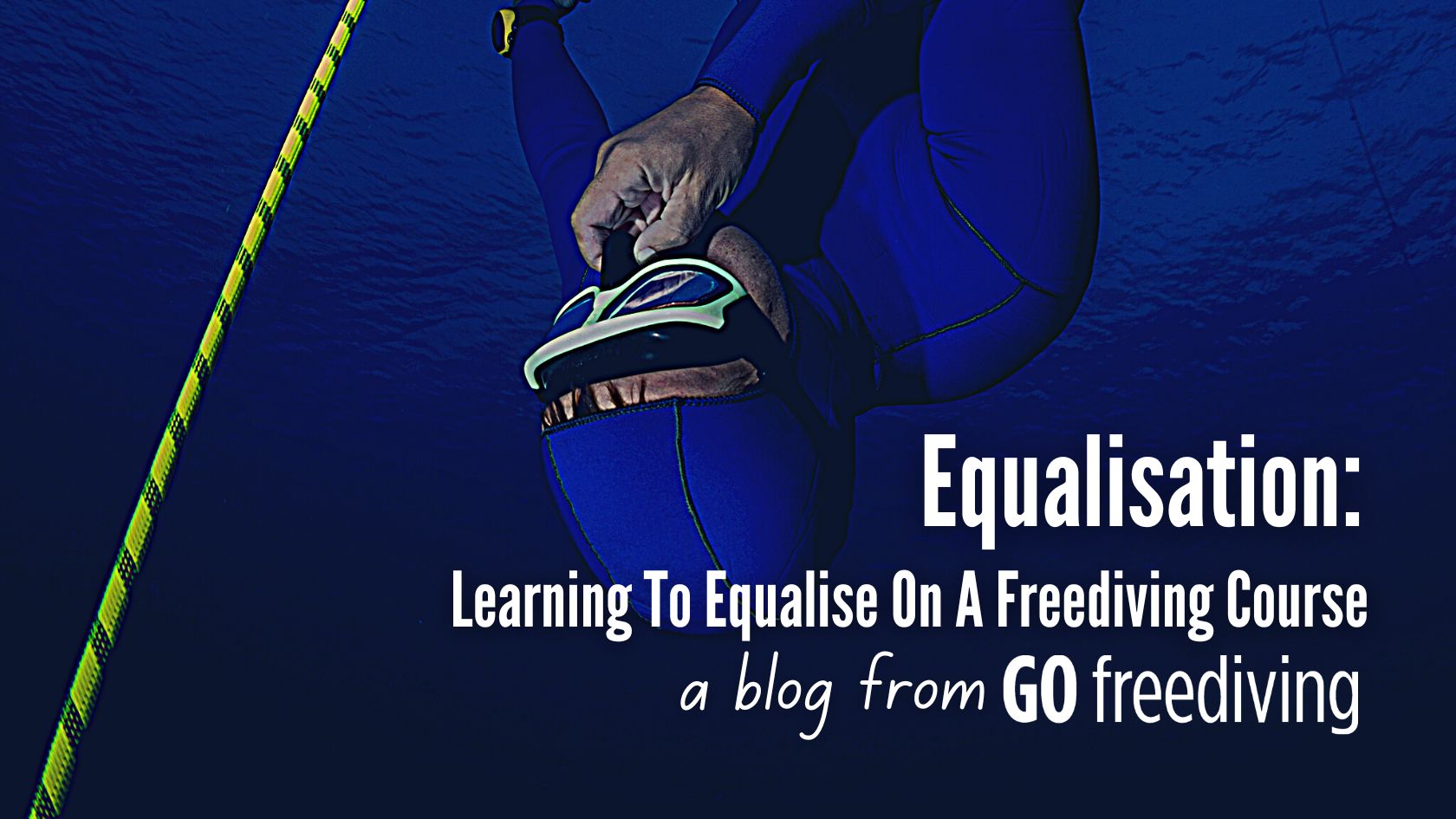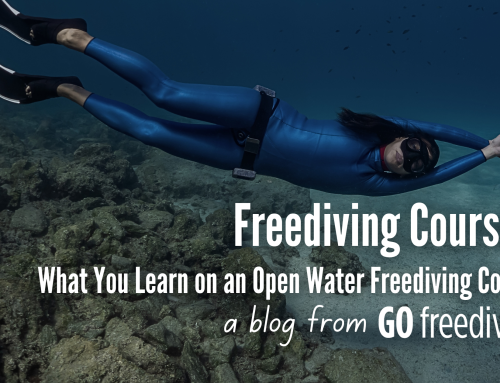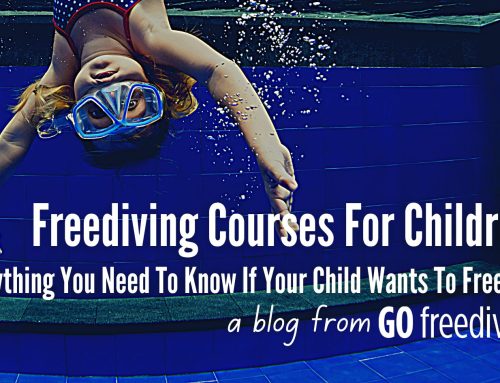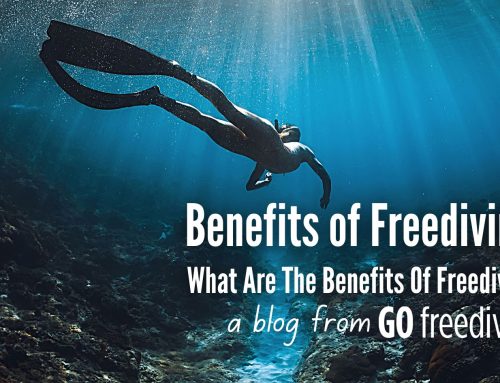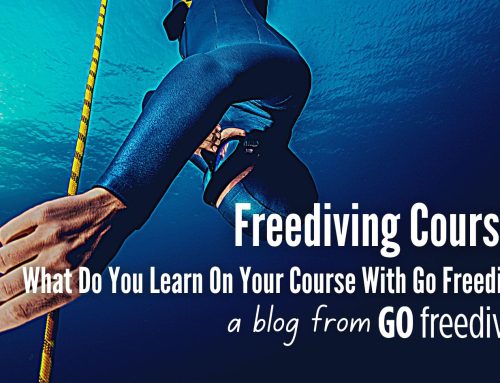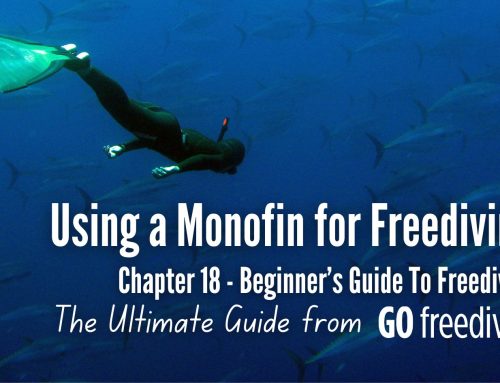Learning to equalise is one of the core skills a freediver needs to master in order to maximise performance, comfort and enjoyment of freediving.
Every person is different in terms of their physical make-up. Some people find learning to equalise easy, not even needing to pinch their nose. Others may find it a real struggle. Emma (along with some of her instructors) took around a year to finally master the technique.
“…When I first started freediving I was limited immediately by my inability to equalize the pressure in my ears. I could just about equalize to a depth of a few meters if I hauled myself down feet first, but if I tried to equalize head first then nothing happened. This was incredibly frustrating, compounded by those around me who told me that I would never be able to equalize because there was ‘something wrong’ with my ears.
It took almost a year for me to learn how to equalize headfirst and for my body to adapt to being in water and upside down. I always tell students that if I can learn equalization for freediving, then anyone can, and I have never met anyone who cannot learn to equalize for freediving, given enough time and perseverance…”
Emma Farrell
Why is learning to equalise so important?
Our body contains air spaces. When we descend in water, the air spaces inside our body get smaller due to pressure. If we do not add air into these spaces to compensate – equalizing the pressure within them and bringing them to the same volume we have at the surface – then injury will occur. The most common first indication that you have not equalised correctly or sufficiently is ear pain.
Which method of learning to equalise is best for freediving?
There are a number of different ways to equalise, but the most efficient for freediving is the Frenzel technique which was designed to use different parts of your mouth and throat to cause air to enter the Eustachian tubes of the ear and equalise the pressure. This differs to the valsalva technique because it is a more controlled method and doesn’t use the diaphragm. It is much more targeted and effective and ultimately safer (you can actually damage your ears due to the higher pressure that is created via the Valsalva technique).
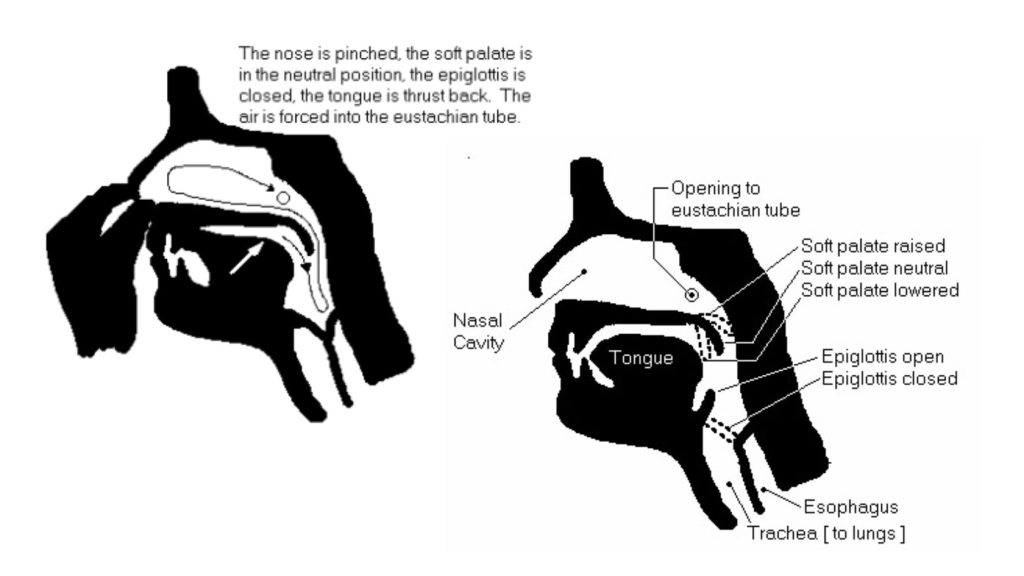
How does Go Freediving teach students to equalise?
Before you even attend the practical element of your course, Go Freediving provides you with a library of tutorial videos. These videos are not compulsory to watch, but we do recommend them as they provide invaluable tips and information about the skills and techniques you will learn on your course.
During the classroom sessions of the course, we demonstrate and work with students to practice the technique before they attempt to equalise in the water. We also discuss different equalisation aids that can help when they are learning to equalise at home.
We also place great importance on planning for every equalisation, and my instructors and I advise our students to make sure they pre-empt any attempt to equalise as early as possible.
To reduce the stress on your eardrums it is vital that you equalise early and even before you need to. We frequently ‘prequalise’ – a description invented by Jorgen, one of my Go Freediving instructors – when on dry land too. This method allows for the ear to be slightly over-pressurised pre-duck dive and means any delay in the second equalisation at four to five metres is offset by the ear already having been pre-equalised.
What tips can we offer anyone learning to equalise?
If you are a freediver or enjoy snorkelling or scuba diving and want to dive deeper in comfort and safety, there are a number of things you can do to promote more efficient equalisation. These range from attending a course, to exploring diet and lifestyle, through to using equalisation aids to practice with at home. You can find more information about this in our equalisation tips article.
Freediving Courses With Go Freediving
Go Freediving is the longest established, most experienced and friendliest freediving course provider in the UK, led by world class freediving instructor trainer Emma Farrell, and her team of personally trained instructors. No other course provider has such a good instructor to student ratio, safety record and personal touch.
Whether you’re a beginner dipping your toes into the world of freediving, a seasoned pro looking to turn professional, or simply a freediver of any level who wants the best freediving holiday in the world, we’re here for you!
Also check out our online guide, The Beginners Guide to Freediving by clicking here!
Want more from Go Freediving?
Scroll to the bottom of our webpage where you can sign up to our newsletter, find the dates for all upcoming trips and courses, read even more blogs, or connect with us on social media!
See you in the water!
